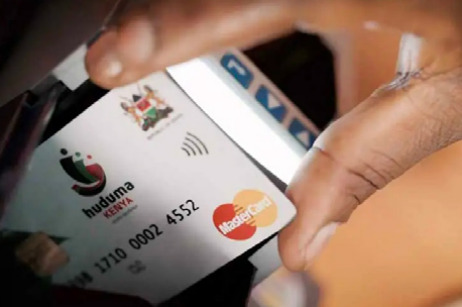Evolution of Huduma Namba to Maisha Namba: New digital ID roll-out while balancing innovation, privacy, and trust

The integration of Huduma Namba, the National Integrated Identity Management System (NIIMS), into various sectors initially sparked both excitement and scepticism in Kenya’s rapidly evolving digital landscape. What started as an ambitious initiative aimed at consolidating citizens’ data and streamlining government services began encountering significant challenges, manifesting as social distrust. While the government envisioned enhancing the national ID system, concerns over mass surveillance and commercial interests quickly tainted the distribution of Huduma Namba. The failure to conduct a comprehensive data protection impact assessment added to the complexity, exposing potential risks such as data manipulation and compromised privacy.
The Independent Electoral and Boundaries Commission (IEBC) also voiced reservations about integrating Huduma Namba into voter registration and verification processes. The proposed replacement of the national identity card with Huduma Namba raised valid worries about the incomplete rollout and limited time before the 2022 General Election. Furthermore, uncertainties about duplicating efforts with the existing Kenya Integrated Election Management System (KIEMS) and conducting data accuracy audits further complicate the integration process. A recent High Court ruling declaring Huduma Namba illegal and raising data privacy concerns added another layer of complexity. Critics highlighted potential privacy breaches and misuse of centralized personal data, questioning the transparency in the data usage and expressing worries about excluding marginalized populations due to digital barriers. Reports of coerced enrollment raised doubts about voluntary participation and debates over the costs of voluntary participation.
Thus, the proposed changes in the Huduma Bill 2020 sought to establish a collaborative relationship between businesses and the government using citizens’ data. Despite legal challenges and the High Court ruling, the government was determined to install the NIIMS, promising streamlined processes for business registration, tax applications, and utility connections. This partnership would have allied businesses to access accurate and verified data, bolstering service provision and reducing fraud risks.
In the present day, a Memorandum of Understanding (MoU) has been established between Kenya and the United Nations Development Programme (UNDP), marking a significant step towards bolstering the country’s digital identity initiative. The endeavour, now rebranded with the name “Maisha Namba,” has been reported by Capital News. The transition from the former Huduma Namba to the Unique Personal Identifier (UPI) system, aptly named Maisha Namba, represents a pivotal development. This renaming holds symbolic significance as “Maisha,” translating to “life” in Swahili, conveys the essence of this comprehensive identification programme. In contrast, “huduma” from Huduma Namba means “services.”
Scheduled for unveiling on October 2, Maisha Namba will become a central element of citizens’ identification, supplanting the current birth-entry number on birth certificates. This new identifier is poised to act as a unifying thread throughout various life stages, encompassing education, acquisition of a national ID, and obtaining a KRA Pin.
A notable facet of this initiative is the issuance of the “Maisha Card,” complementing the digital ID framework. Furthermore, establishing a National Master Population Register, derived from insights gained during a visit to NADRA in Pakistan by the Principal Secretary of Immigration and Citizen Services, Prof Julius Bitok, will harmonize and consolidate government databases.
In a tweet, Prof Bitok extolled the virtues of this digital identity system, highlighting its pivotal role in furnishing secure and reliable verification for diverse purposes. Among the benefits, the system is anticipated to enhance efficiency, curb fraudulent activities, and combat corruption. Particularly noteworthy is the system’s potential to enable Kenyans to engage in online transactions with global service providers seamlessly.
Moreover, Pulselive Kenya reports that Maisha Namba will be a foundational element for the National Health Insurance Fund and the Kenya Revenue Authority. The multifaceted applicability of Maisha Namba underscores its significance in underpinning various vital services and functions.
In lauding Kenya’s engagement with non-governmental organisations, UNDP Resident Representative Anthony Ngororano emphasises a comprehensive, “whole of society approach” towards implementing the national digital ID. This approach reflects a concerted effort to garner collaboration from all sectors of society, ensuring the successful integration and adoption of this transformative initiative.
As Kenya embarks on this innovative trajectory, the narrative of its digital identity landscape echoes a broader tale of balancing innovation, privacy, and trust. The evolution from Huduma Namba to Maisha Namba encapsulates technological progress and the imperative of addressing data privacy, security, and public acceptance concerns. With careful deliberation and a collaborative spirit, Kenya is poised to forge a digital identity future that harmonizes these critical aspects, ultimately fostering enhanced services, inclusion, and economic growth.
Kenya’s journey towards digital identification systems, from the troubled Huduma Namba to the emerging Unique Personal Identifier (UPI) system, encapsulates a delicate balancing act between innovation, privacy, and trust. As businesses navigate this evolving landscape, it is clear that the success of these initiatives hinges on addressing data privacy, security, legal uncertainties, and public concerns. The path forward requires careful consideration and collaboration to unlock the potential benefits while safeguarding the rights and interests of all stakeholders involved. Kenya can forge a digital identity future that enhances services, inclusion, and economic growth through a comprehensive and well-considered approach.

